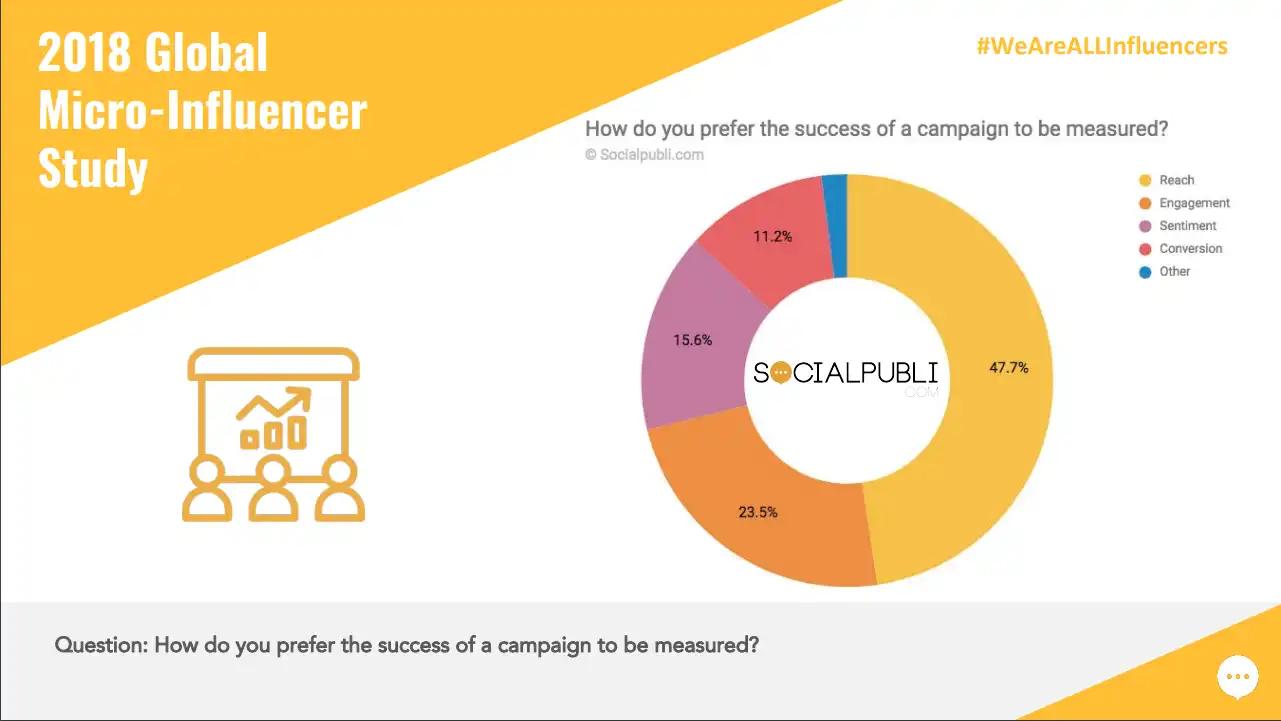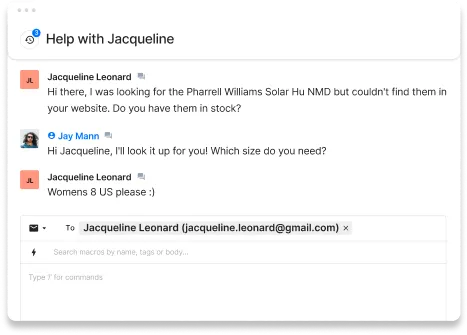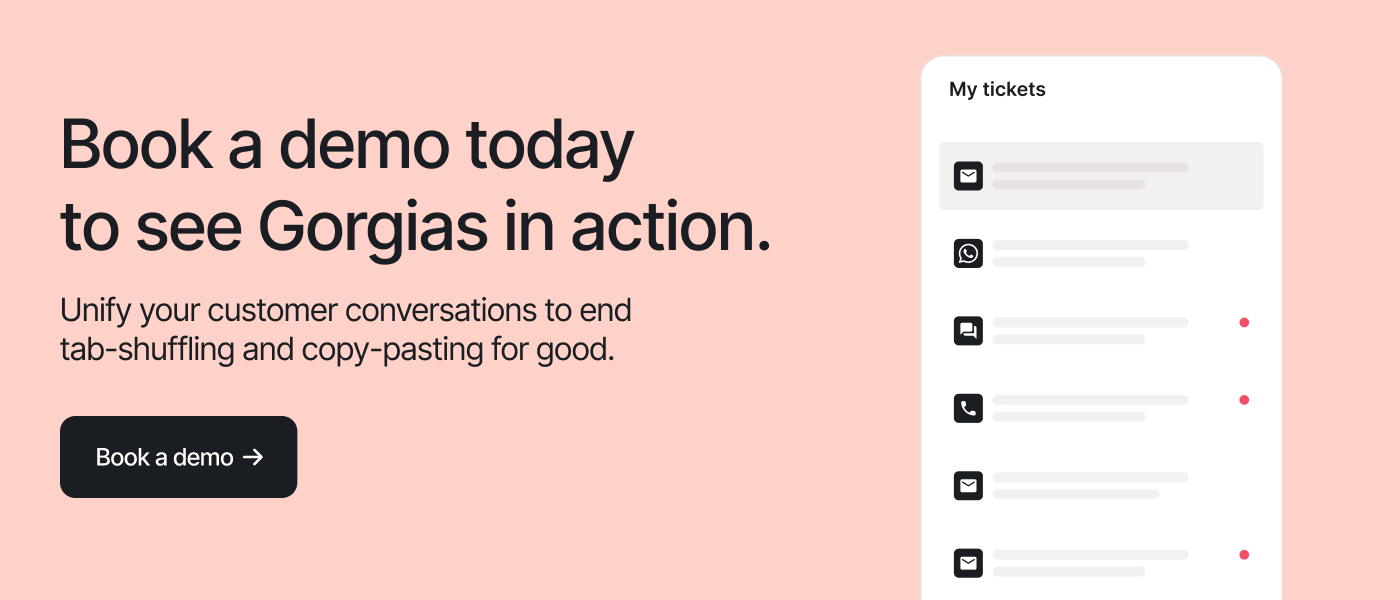Almost 50% of consumers depend on ecommerce influencers to guide their purchasing decisions.
Partnering up with an influencer your target audience resonates with can help you attract new customers, cultivate your community, and grow your sales.
We've discussed the benefits of social media for customer service, but in this blog we'll discuss using social media influencers to expand your brand's reach. Here’s what you’ll learn in this guide:
- What influencer partnerships are all about and how can you use them
- Why companies similar to yours choose influencer marketing
- How to find the right influencers and get started on your first campaign
What is influencer marketing for ecommerce?
Influencer marketing is the process of working with social media influencers to advertise your ecommerce products on their social channels to their followers. Usually, you'll work with influencers whose followers are within your target audience.
{{lead-magnet-1}}
How to leverage influencer marketing
You know how it works, how to use it, but you’re still not sure how to create an influencer marketing campaign. Don’t worry, it’s not that complicated.
Here’s what you need to know about launching an influencer campaign.
1. Create a marketing persona
You can’t pick a partner if you don’t know who you want to attract. That’s why creating a “marketing persona” needs to be the first thing you do. Determining what age, gender, and interests of your average customer can help you a lot.
Let’s say you’re selling women's clothing. You do your homework and find out that most of your visitors are ladies in their 40s from North America and Canada. This knowledge narrows your search down. You need an English-speaking influencer that appeals to middle-aged women.
That can get things going.
2. Select social platforms
Once you get to know your audience, you’ll easily find out what are some of their social media platforms on the Internet. Consider platforms like TikTok, Instagram, Facebook, Twitter, or LinkedIn.

If you’re looking for a universal solution, then you should reach out to Instagram influencers, since the platform has one of the most diverse user-bases. According to Social Media Today, Instagram is the most active influencer platform.
3. Look for the right influencer for your store
You of course want a partner with a good reach. Contacting a person with less than 1,000 followers doesn’t make any sense, correct? That person can’t be even called an influencer. But you shouldn’t get stuck on every metric.
Engagement is what you’re looking for.
Sometimes, smaller is better. You might be surprised to know that micro-influencers are far more effective than big ones. In fact, an average micro-influencer gets 7X more engagement than a far-reaching one.

4. Reach out to multiple influencers
As soon as you nail what type of audience you’re targeting and what kind of person would suit your store best, you need to start getting in contact with influencers. However, you can’t just reach out to one and hope you get a response right away.
You need to contact a few social media personalities at the same time. Using a platform such as FameBit, or #Paid you’ll be able to contact several influencers, sort them by followers, age, and other metrics that can be helpful for your marketing campaign.

5. Evaluate your potential partners
As we keep saying, you need to find someone that your buyers will find relatable. Relatability is twice as important as popularity if you want to attract the right kind of people.
Talk to the influencers, see what their values are, do they align with your values, and see whether or not they’d shop at your store if you didn’t reach out to them.
6. Set the objectives for your partnership
Like any other form of marketing, your influencer strategy can and has to be measured. You can’t expect to have a successful strategy without some tweaks along the way. And you can’t really make any corrections to your strategy if you don't know how it’s performing in the first place.
According to research from the Digital Marketing Institute, these are the biggest KPIs for measuring your effectiveness:
- Reach and Awareness
- Audience Growth
- Referral Traffic
- Conversion Rate
- User Engagement
Your KPI choice depends on your needs and ambitions. Sit down with the rest of your team, discuss in which direction you want to take things, and only then select important KPIs.
7. Select a platform to measure your campaign
For three-quarters of business owners, measuring ROI is the biggest challenge of an influencer marketing campaign. Nonetheless, measuring success should be one of the most important parts of your campaign.
You need to have the right tools if you want to get the job done right. NeoRech can help you track referrals and monitor the effectiveness of every single influencer you have, while TapInfluence can help you measure your ROI more effectively.
8. Launch your first influencer campaign
Once you have your influencers in place, your KPIs all set, and all of the measuring tools in place, you can give your partners permission to start the campaign.
For the first couple of days, the surge of visitors might not be huge. However, after a month or so, you can expect to see some serious results from the campaign.
9. Ask for testimonials
This is a perfect opportunity to get some content for your website. You can always ask for a couple of testimonials from the people you’re working with and place the quote alongside their pictures on your website.
Now your visitors can see who works with you.
Every person that visits your website will know that the influencer vouches for your store, products, and organization. That testimonial will allow you to build your brand, establish credibility, and boost trust among your consumer base.
10. Make the partnership mutually beneficial
Last but not least, try to make the partnership mutually beneficial for both parties. By that we mean, consider offering the influencer some discount codes or some of your products.
The influencer can and will send a good number of users your way. That shouldn’t be a one-and-done deal. More than a third of influencers like to work with brands long-term. If the first campaign turns out as planned, why not do it a few more times?

Why businesses rely on influencer marketing
A business can’t rely only on influencers to increase sales. You should look at this as an enhancement tool for your current marketing strategy.
It’s a great, cost-effective way of improving marketing efforts. Nearly 90% of marketers feel that influencer marketing has a better ROI than other, more traditional marketing channels.
Let’s look at a few more ways influencer marketing can help your store…

They have real sway with their followers
While a niche influencer may not be able to reach millions of people, they can still have a lot of influence over a small group of users. Niche influencers attract are comprised out of users who share the same interests, buy the same products, and visit the same stores.
Therefore, by working with an influential person, you’ll be able to reach that small amount of people and turn them into regular customers. You just need to find a person that caters to your target audience. For example, if you go into a random gym in your area, you’ll probably find someone wearing Gymshark clothing. The company is huge. At the moment, it’s valued at about $200 million.

And how did the company manage to find the right influencers? By knowing their target audience.
Their gym clothing was aimed at millennials. As soon as Gymshark launched a line of women’s clothing, they sought out young fitness influencers like Nikki Blackketter to team up with them. Soon after, their “Flex Leggings” became a huge hit among millennials.
They're really relatable
As we established, while celebrities may be influencers, they’re usually seen as spokespeople for certain brands and companies. Why is that? That’s because celebrities live completely different lives than 99% of us.
Simply put, the average person can’t relate to most celebrities. Relatability is everything if you want your campaign to generate real results. Almost 90% of Gen Z-ers and Millennials follow influencers because they’re relatable.
They can help niche or taboo businesses
If you’re selling niche products that aren’t considered mainstream, you may have trouble finding success with mainstream advertising. For instance, anything that Google deems “dangerous advertising” is heavily prohibited.
Everything CBD and marijuana-related products to martial arts equipment and hunting gear all fall into that category. Stores that sell similar products can get a healthy amount of visitors and brand exposure from influencers.
Partner up to get your profits up
If you want to partner up with an ecommerce influencer to grow your online store, you should start by thinking about how that partnership can help your store increase sales and help your brand become more known. Here are a few things to keep in mind:
- Influencer marketing works perfectly on people who dislike traditional marketing
- Social platforms allow influencers to make the most out of their connection with users
- Continuously investing in influencer marketing can be beneficial for both parties
And remember: even though influencer marketing is still new and always adapting, it’s just a regular marketing strategy that needs to be monitored and measured. For that, you need the best tools. Speaking of which, check out our post on the best social media integrations for Shopify.
If you are starting out with an influencer campaign, especially on Instagram you may see a spike in engagement on your Instagram feed. If those users are commenting on your posts - especially your products, don’t just ignore them, welcome them to your community.
{{lead-magnet-2}}








.png)








